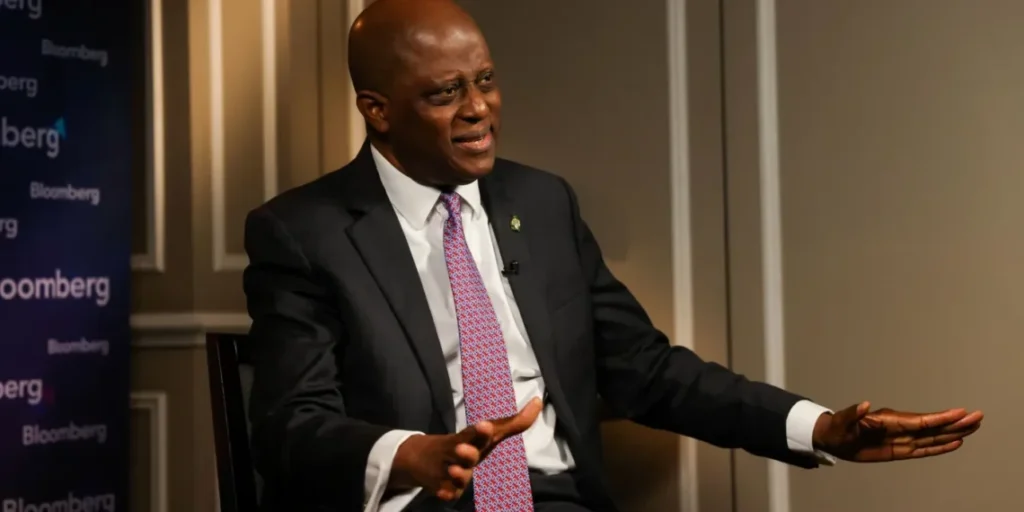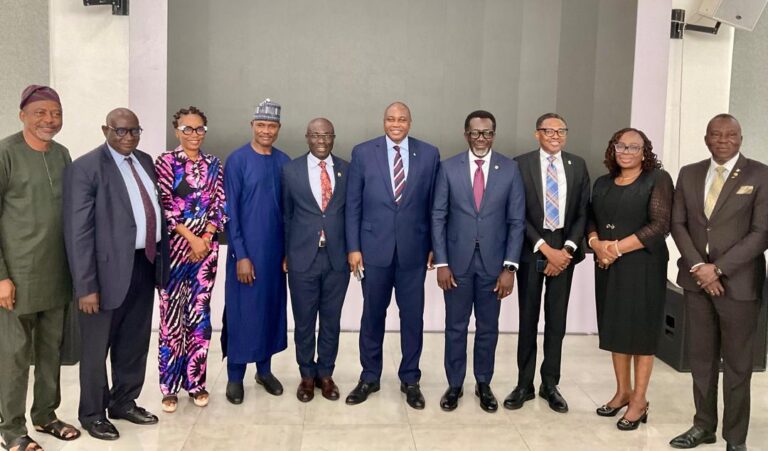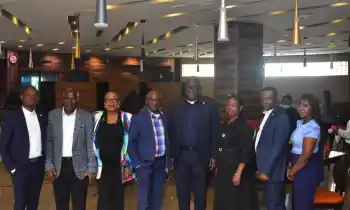
Nigeria’s bold economic reforms are beginning to yield tangible results, restoring investor confidence and positioning the country for long-term growth despite global uncertainties. This was the central message delivered by Central Bank of Nigeria (CBN) Governor, Olayemi Cardoso, during a media briefing at the conclusion of the 2025 Spring Meetings of the International Monetary Fund (IMF) and World Bank Group in Washington D.C.
Addressing journalists, Cardoso outlined the outcomes of Nigeria’s engagements during the meetings, noting that the platform provided an opportunity to showcase the country’s macroeconomic progress and reaffirm its commitment to sustainable development. “These meetings came at a time of heightened global uncertainty, underscoring the need for stronger economic safeguards,” he stated. “Our focus has been on enhancing macroeconomic stability, boosting financial resilience, and advancing inclusive growth.”
One of the key highlights was a high-level global forum hosted by the Nigerian delegation at the Nasdaq MarketSite in New York, ahead of the Spring Meetings. According to Cardoso, the forum attracted global investors, financial stakeholders, and Nigerian diaspora leaders, facilitating candid discussions on Nigeria’s economic trajectory. “The response was overwhelmingly positive. Our reform efforts, especially those targeting foreign exchange stability and market confidence, were well received,” he said.
The Governor noted that Nigeria’s macroeconomic fundamentals have strengthened over the past 18 months. Inflation, while still a challenge, is being tackled with a clear policy focus on achieving single-digit levels in the medium term. He emphasized that the CBN’s commitment to data-driven and evidence-based decision-making has not only improved monetary policy credibility but also earned accolades from international investors for its transparency and timeliness in data dissemination.
Among the reforms lauded by stakeholders is Nigeria’s transition to a market-determined foreign exchange regime. “Speculative arbitrage has virtually disappeared, and the once-wide gap between the official and parallel market rates has closed significantly,” Cardoso explained. He attributed this development to policy clarity and discipline, which have also helped stabilize the naira and boost autonomous foreign exchange inflows.
As of early 2025, Nigeria’s foreign reserves have surpassed $38 billion, offering nearly ten months of import cover. The country also recorded a balance of payments surplus of $6.83 billion in 2024 — the strongest in years — driven by increased exports and renewed capital inflows. These outcomes, according to Cardoso, underscore the impact of timely policy interventions and a forward-looking approach to economic management.
In the financial sector, the ongoing banking recapitalisation exercise is gaining momentum. Cardoso reiterated that the initiative would enable Nigerian banks to support the real economy more robustly, ensuring scale and sustainability. “This is not just about financial strength but about building a banking sector capable of meeting the evolving needs of our economy,” he stated.
The Governor also touched on the progress in diaspora remittances, which have become a growing source of foreign exchange inflows. He highlighted new banking products that allow non-resident Nigerians to invest in both naira and dollar instruments with the flexibility to repatriate funds. “Diaspora feedback has been encouraging. These innovations are deepening engagement and opening new channels for sustainable inflows,” he said.
On lessons drawn from the global meetings, Cardoso echoed the IMF’s stance on tailoring monetary policies to local contexts. “There’s no one-size-fits-all solution. The key is to remain agile, forward-looking, and ready to respond proactively to risks,” he said, citing Nigeria’s reforms as a timely response to economic vulnerabilities.
Looking ahead, Cardoso reaffirmed the CBN’s resolve to consolidate gains, deepen reforms, and continue working closely with fiscal authorities under the leadership of the Finance and Coordinating Minister of the Economy, Mr. Wale Edun. “We return home encouraged but not complacent,” he concluded. “The path we’ve chosen is not easy, but it is delivering results. Nigeria is moving from a position of vulnerability to one of strength and resilience.”
As the global economy grapples with new and evolving challenges, Nigeria’s reform story is emerging as a case study in determination, strategic agility, and economic renewal.










